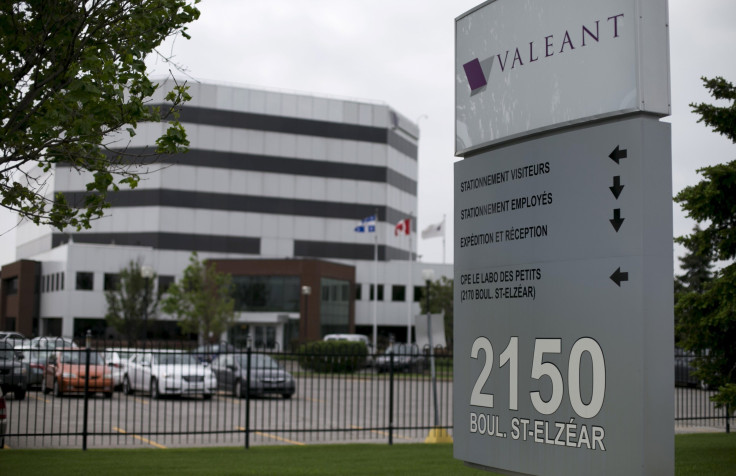Valeant Woes Multiply With Federal Antitrust Probe Into Contact Lens Business

The same day that executives and board members at Valeant Pharmaceuticals International Inc. held a special call to calm investors over the company's embattled pharmacy model, the drugmaker quietly released a statement that another part of its business was under fire: Federal investigators have opened an antitrust probe into Valeant's expansive contact lens business.
The news was largely overshadowed by Valeant executives' 74-minute elucidation of the company's specialty pharmacy model, which last week became the target of multiple reports alleging fraud and malfeasance. The wave of scrutiny over the business last week left shares of Valeant down more than 50 percent from their August highs.
But new reports into the Federal Trade Commission (FTC) probe indicate that one of Valeant's fastest-growing business segments could soon butt up against a regulatory ceiling. As Pro Publica reports, FTC investigators are looking into a segment of Valeant's eye care business that produces a special type of contact lens worn by about 10 percent of the contact lens market.
With its May 2015 purchase of specialty contact lens manufacturer Paragon Vision Sciences, Valeant captured an estimated 85 to 90 percent of the supply chain for rigid contact lenses, which are worn by people who can't wear standard soft lenses, according to an industry expert quoted by Pro Publica. At the time of the Paragon purchase, Valeant also owned Paragon's main competitor, Bausch and Lomb, which Valeant acquired in 2013 for $8.7 billion.
Valeant followed up its Paragon acquisition by increasing the price on lens materials and telling other manufacturers in the supply chain it would discontinue sales, manufacturers told Pro Publica. A component in a type of therapeutic lens known as Ortho-K, for instance, tripled in price over the last year. The only companies licensed to manufacture the component in the U.S. are Bausch and Lomb and Paragon.
The aggressive moves are characteristic for the Canadian pharmaceutical titan, which has racked up an impressive string of multibillion-dollar acquisitions that have reshaped the industry in the past decade. But that same elbows-out approach is now being questioned by investors wondering if Valeant's acquisitive model can sustain long-term growth without running afoul of regulations.
© Copyright IBTimes 2024. All rights reserved.












